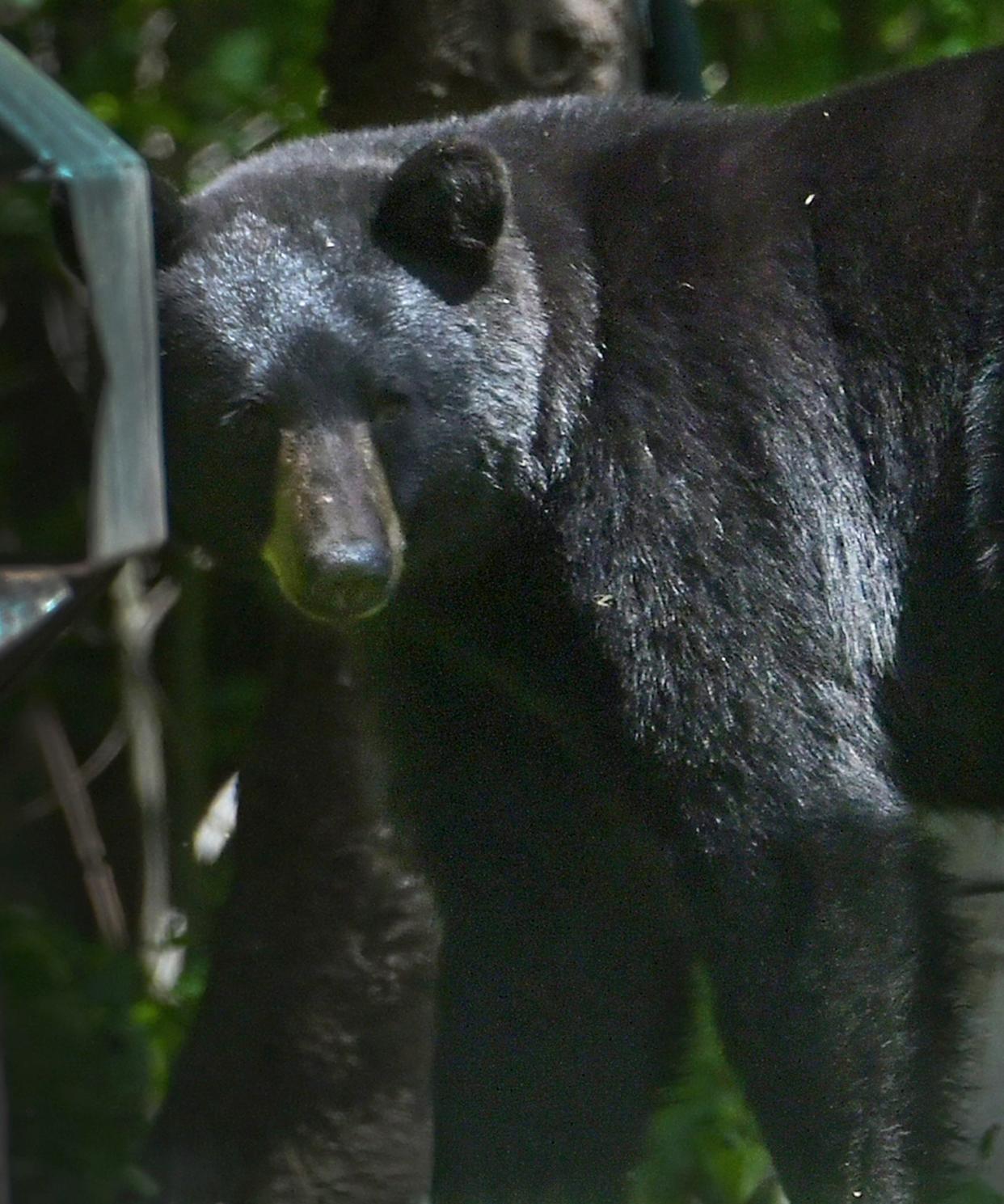Reminder, there are about 5,800 bears in New Hampshire. Here's how to practice bear safety
The start of summer means the end of school - and for many kids, their time at home before they head off to college in the fall. But humans aren't the only animals making plans to leave the proverbial nest - or den, in this case.
Early summer is when young bears leave home to find one of their own - and with no mom or dad to help them move in and get settled.
"Yearlings, bears that were cubs last year, are now 18 months old and are dispersing from the sow in search of their new home range," said Dan Bailey of New Hampshire Fish and Game Wildlife Division. This just happens to be the same time as their habitat is set to be flooded with humans looking to enjoy the great outdoors through hiking and camping.
Here are few tips to minimize conflict and maximize safety - for both humans and the incoming freshman class of bears trying to learn the ropes.
Be loud - but calm

As a rule, bears want to avoid people, and with ears and noses on an order of magnitude better than humans, they will be aware of us and vacate the area before we even know they were there.
"They’re shy and skittish by nature," said Bailey. "If you encounter a bear, it’s because that bear hasn’t seen you yet."
You can help ensure this by making a degree of noise while hiking in bear country to let any bears know you're coming. Even just hiking in a group of more than three will help, as a bear will be able to see, hear and smell you more easily. Talk loudly, occasionally sing or clap - even if it feels like you're disrupting the serene forest soundscape.
If you still manage to catch a bear unawares (remember, many of these may be young and inexperienced), make your presence known by talking loudly and clapping your hands
"Say things like 'Hey bear,' talking loudly in a calm voice and it will move in the opposite direction," said Bailey.
Lock up your food
Once a bear finds your food, they're likely to be less than willing to abandon it.
So, prevention is key.
"No food in and around the campsite if you’re not actively using it," Bailey said.
Often times, campers will have a snack before heading out on a hike, leaving their food out in the open - something a bear of any age will find impossible to pass up.
Storing any food in a locked cooler or vehicle will minimize the scent. Emphasis on locked.
"Every year we get reports of bears opening car doors," said Bailey. While they may discover this by accident (unless their mother has taught them) bears will remember "that moving that handle will open the door."
How many bears does New Hampshire have?
Like human young adults, living space is at a premium among bears. The bear population has doubled in the last 30 years, said Bailey, with the most recent estimate being around 5,800 bears statewide. As they search for a new territory, the yearlings are finding many areas already held by a resident older bear who chases them out.
"They’re at the bottom of the social hierarchy without their mother," said Bailey. In the course of this search for home and a food source, they will inevitably wander into residential areas or campgrounds. But humans can take steps to prevent this and mitigate any potential conflict, he said. And give the bears a chance to learn.
"They’ll figure out their own home range and learn to avoid people with time," said Bailey. "But we need to take responsibility."
This article originally appeared on Telegram & Gazette: Summer is peak bear season. Here's what to know about bear safety
